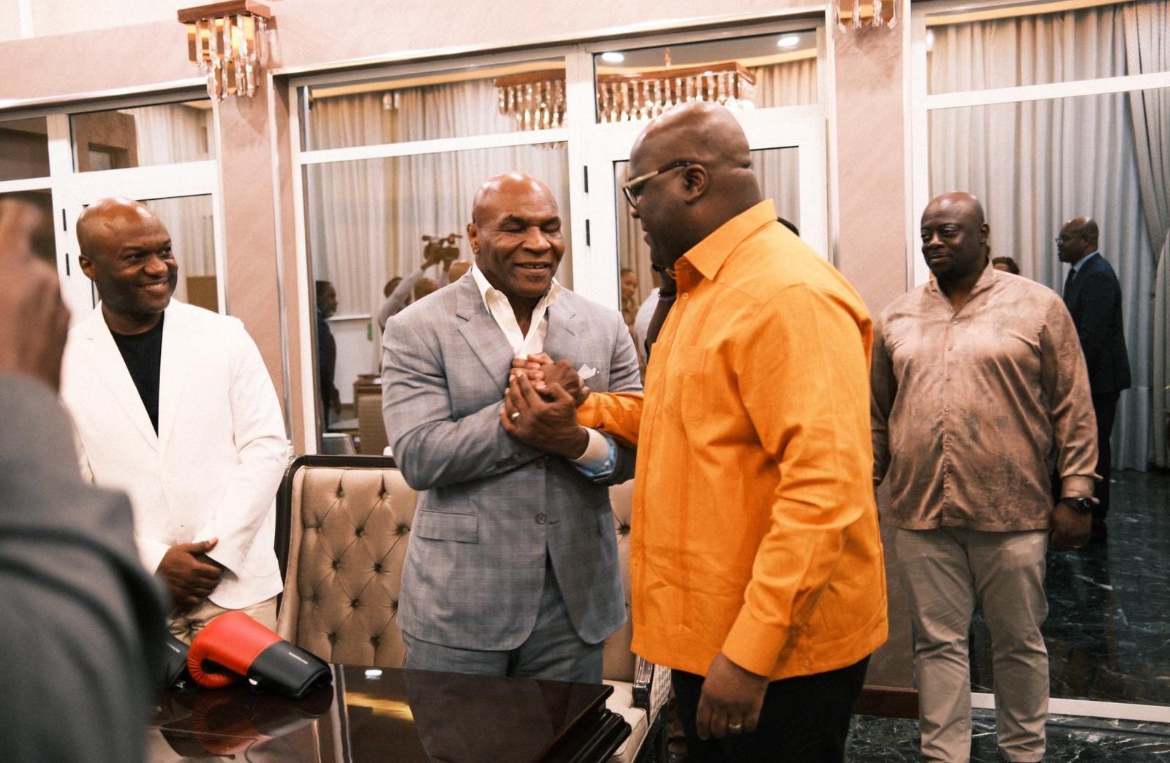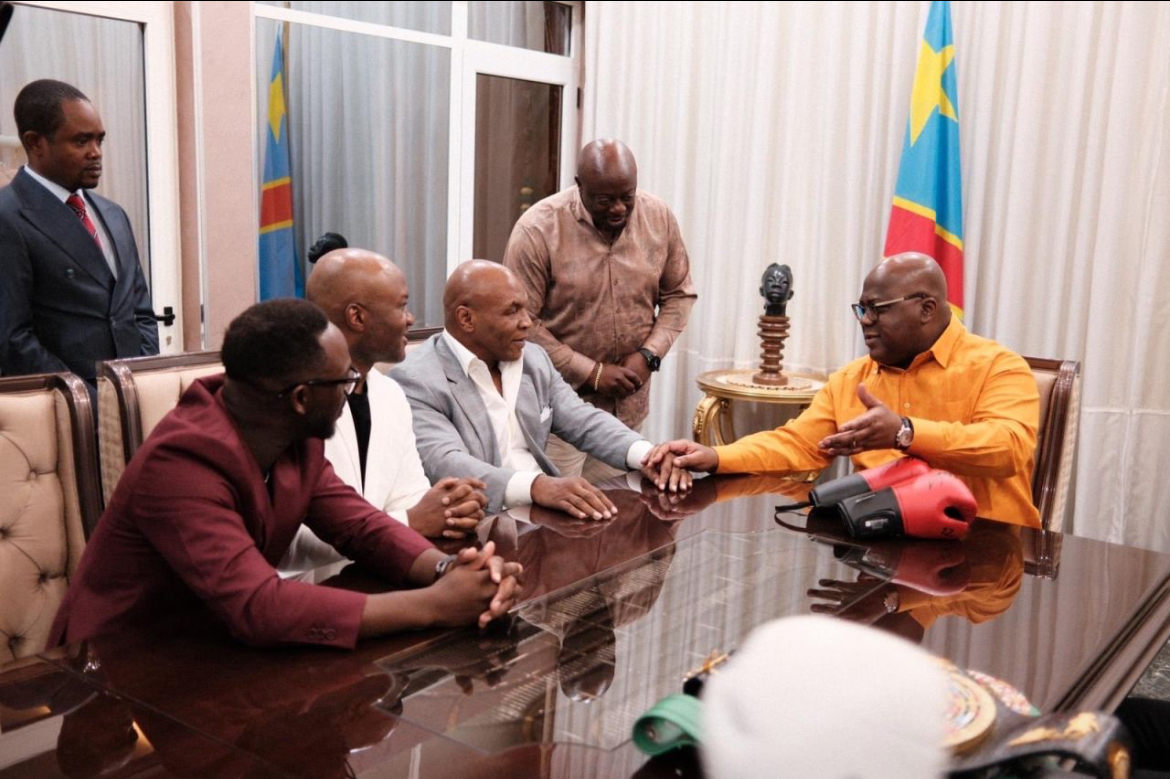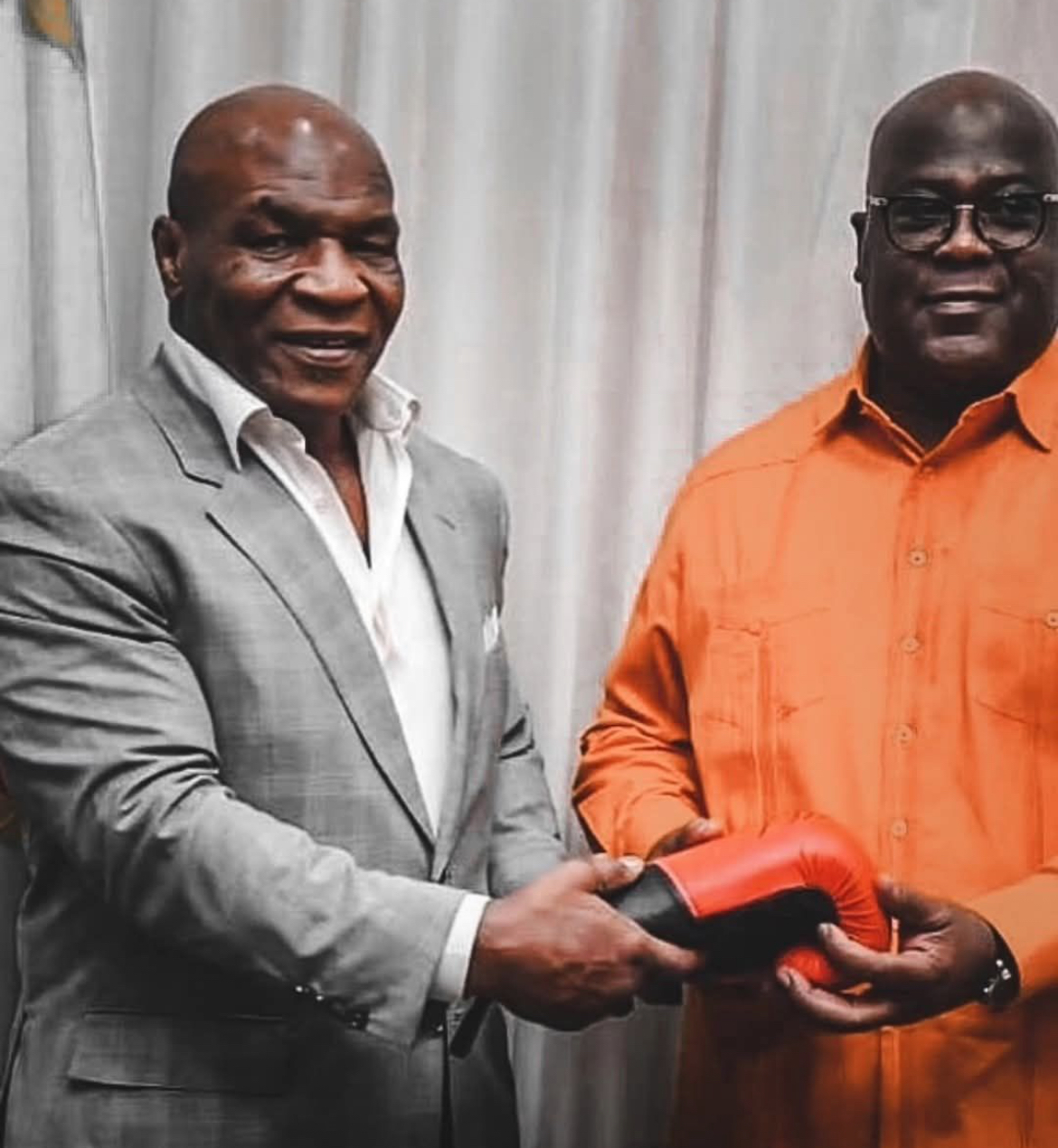IN the heart of Central Africa, the streets of Kinshasa echoed with celebration as a man returned — not with the defiance of a champion reclaiming a title, but with the humility of someone seeking to understand where his story may have begun. Mike Tyson, a name synonymous with boxing greatness and personal reinvention, arrived in the Democratic Republic of Congo (DRC) not as a tourist, nor merely as a public figure, but as an individual attempting to reconnect with ancestral roots that had, for centuries, been obscured by the forces of history.
The moment was met with public enthusiasm and cultural ceremony, but beneath the spectacle lay something quieter and more profound: the rethreading of historical ties between Africa and its far-flung diaspora. Tyson’s visit has sparked discussion far beyond the realm of sports, touching on themes of memory, belonging, and the reclamation of African identity in a postcolonial, globalised age.
His arrival was greeted by thousands — a blend of admirers, cultural leaders, and community members. Yet, unlike the media portrayals that often reduce African receptions to exuberant crowds and colour, this welcome carried the quiet weight of historical recognition. It was not the adoration of celebrity alone, but the acknowledgement of a return — a return that many on the continent, and throughout the African diaspora, understand not in linear terms but in cultural and spiritual ones.
In his public remarks, Tyson spoke of the visit as a “homecoming long overdue.” While this sentiment is emotionally resonant, it also taps into deeper historical processes. For centuries, Africa’s children were taken, scattered, and rendered invisible within the narratives of empire, slavery, and colonialism. The transatlantic slave trade may not have directly removed Tyson’s ancestors from Congolese soil — the precise details of his lineage remain emerging — yet the symbolic weight of reconnection remains palpable. The act of retracing those origins, of touching the earth where one’s ancestors may have once walked, carries meaning beyond genetic linkage.

This was not the first time Kinshasa became the centre of global attention through boxing. Tyson’s visit rekindled collective memory of the 1974 “Rumble in the Jungle,” where Muhammad Ali defeated George Foreman in one of the most iconic matches in sporting history. But unlike that carefully orchestrated Cold War-era event, Tyson’s journey did not seek to brand Africa as backdrop. Instead, it offered a moment for the DRC — and by extension, the continent — to be seen on its own terms: as a place of history, memory, and enduring cultural resilience.
Tyson, now 59, has undergone an extensive personal transformation over the past two decades. Once feared as the most dangerous man in the boxing ring, and for a time a figure mired in controversy and violence, his public narrative has evolved towards introspection, mental wellness, and philosophical inquiry. This visit was consistent with that trajectory — not as spectacle or redemption arc, but as a step in a longer process of self-examination and healing.
The ceremonies that welcomed Tyson were deeply symbolic. Local elders honoured him with traditional garments and offered symbolic artefacts representing strength, continuity, and communal belonging. These were not token gestures for international consumption, but cultural expressions rooted in values of reciprocity, respect, and ancestry. In many African traditions, one’s identity is never fully complete without acknowledgement of lineage — both biological and spiritual.
At the same time, Tyson’s visit has provoked conversation within Congolese intellectual and cultural circles. What does it mean for someone of African descent, raised entirely outside the continent, to return? Is it enough to stand on African soil to claim belonging, or must that belonging be earned through ongoing engagement, learning, and mutual respect?

To Tyson’s credit, his time in the DRC has thus far reflected a willingness to listen and learn. He met with historians and genealogists who helped him trace his roots, and he visited communities whose stories stretch far beyond celebrity narratives. He engaged with local youth and expressed solidarity with those continuing to face systemic challenges — poverty, conflict, and political instability — without reducing them to victims. In doing so, he allowed space for a more balanced narrative: one where Africa is not a place to be saved, but a place to be understood.
There is increasing recognition, across the continent, of the potential for reconnecting with the diaspora not through performative gestures, but through real partnerships and dialogue. Tyson’s visit — if viewed in this wider frame — may help spark new initiatives in cultural diplomacy, heritage tourism, and historical reclamation. Congolese officials have spoken cautiously of future collaborations, ensuring that any such projects respect the agency and integrity of local communities.
Equally important is the broader Pan-African context in which Tyson’s visit is situated. The 21st century has witnessed a renewed interest among African-descended populations globally in tracing their heritage and rebuilding fragmented histories. From Ghana’s “Year of Return” in 2019 to digital genealogy projects in the Americas and Caribbean, there is a growing recognition that the African continent is not merely the site of origin, but an active participant in shaping future identities.
In this sense, Tyson’s visit is not isolated. It is part of an emergent tapestry of reconnection. However, what distinguishes it is the platform he brings — not just as a retired athlete, but as someone whose journey from pain to reflection mirrors that of many postcolonial societies, including the DRC itself. His vulnerabilities, laid bare in recent years, resonate with those of a continent that has endured external misunderstanding, internal fragmentation, and the weight of expectations from within and without.
 For all its public spectacle, Tyson’s journey was not grandiose. It was quiet, even solemn at times. And that, perhaps, is what gives it significance. It was a reminder that Africa is not a stage for return narratives; it is a living continent, with its own pace, dignity, and demands.
For all its public spectacle, Tyson’s journey was not grandiose. It was quiet, even solemn at times. And that, perhaps, is what gives it significance. It was a reminder that Africa is not a stage for return narratives; it is a living continent, with its own pace, dignity, and demands.
In his final remarks before departing Kinshasa, Tyson said:
“I came here to honour my ancestors, to understand their strength, and to celebrate the blood that runs through my veins — the blood of Africa.”
Whether those ancestors hailed directly from the DRC or from neighbouring regions matters less than the gesture itself. The return is not about accuracy alone, but about acknowledgement — of a shared past, a disrupted lineage, and a hopeful future.
In a world where identity is increasingly fragmented and commodified, Tyson’s journey stood as a quiet act of resistance. It was a refusal to forget, a willingness to ask deeper questions, and above all, a reminder that no matter how far history takes us, it is possible — and perhaps necessary — to return.
Source: The Southern African Times